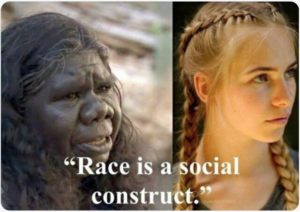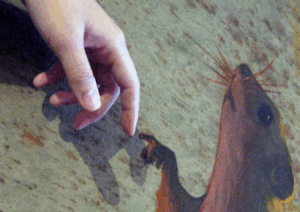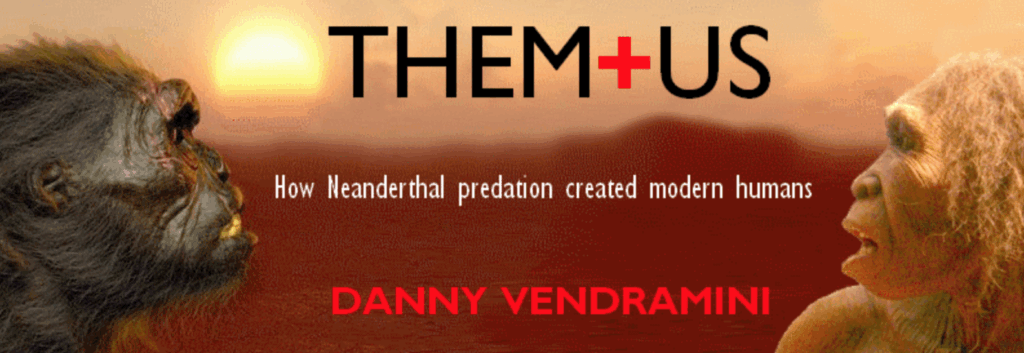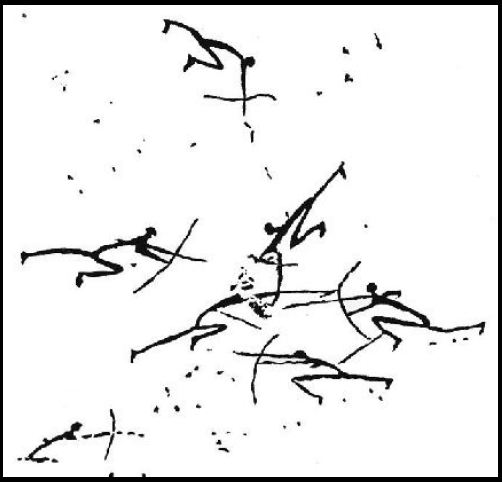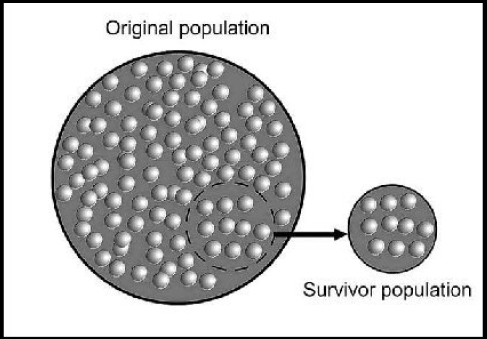by Thomas 2

Children of men by anti-white Alfonso Cuarón was filmed in the UK.
Yes, it is terrible, being here. I deliberately walk around the quieter end of the village, and even then now and again, I encounter a non-white, usually in uniform (the port security employs many, ludicrously, plus all the new local takeaway outlets, plus all their Just Eat drivers: which historical nation until now trusted their direct ancestral enemies to prepare and deliver them their food? But we are this lazy!). Either that or a burqa-clad mother, with pushchair and accursed brat on her arm—always a very disconcerting sight to me. I notice they at least usually stick to the urban side of the village; these creatures have no natural interest in the wilds. I have never seen them among the trees, mercifully.
One Englishman cares (not that I always did enough—I’m not innocent either). Unfortunately, it seems I am alone here, adrift along the edges of horrible shores. Sometimes I wake up and step outside my front door, a scant metre past the flimsy mantle that is our house, staring at the sickly yellow sky, with a murky winter’s sun, a weird, suppurating light suitable for a lost seaside backwater (a locale where people disappear like albatrosses into a liminal fog), thinking about it all: ‘this place… this f**king place…’
Britain is lost everywhere; some foreign rock. I can only really shrug (knowing that snapping and flinging myself into the System headlong is off limits, so I shouldn’t go there – won’t ever) and then dig in, with my provisions around me for as long as I need them, perhaps cynically, or perhaps just in harsh, disappointed acceptance, and wait for their idiotic ‘remigration’ plans to fail and their ‘full proof’ shiny new election-friendly leaders to falter and prove useless at their word, and all orthodox political ‘resistance’ to crumble… and to re-evaluate the citizens then, (perhaps from far away, if I am fortunate), when we know every last inch of their bullshit and excuse-making capability has been stripped away from them, when they can (and as they are scum, it will take brute force!) no longer countenance contriving these lofty phantom escape-hatches for themselves: that endless imaginary ‘resource’ of easily-bought others doing their dirty work for them (and by the book); when reality is whipping them back, finally, when their oldest stance and possession – their cowardice – is denied them under pain of death (it shouldn’t have to take this long). I am aimed to hate my people. They have hurt my pride – my pride in my own race!
I hope the ‘Orcs’ will be driven from here, and from everywhere, with such brutality and with such steel hate. But in this meantime I’ve had to give up on the citizens of the UK. They’ve done their best so far (and it isn’t anywhere near good enough). Later most can die. I’m glad I have my garden and the (little) wilds I talk of and enjoy, and then all the expanse of woods and hills and fields as far down as Manningtree and beyond. That’s my pleasure in this country (and I’m so glad it doesn’t interest them – ‘friend’ or enemy nigh-on alike).
Maybe later I can find a sense of love for my own people again. For the moment I’m just indifferent. They’re not quite enemies, but they are just worthless. I keep this to myself most days—but I think a lifetime of dealing with the perennially irresponsible retinue the defines the scope of my interactions, from [***] and [***] to [***] (though I struggle to always include the later, as the best friend here I’ve got, damage notwithstanding)… of dealing with all these f**king fools, has encouraged me to see Aryan life—much as it’s the most vital of idealistic futures to preserve it (and so I know there are good people I cannot see here even now)—as temporarily expendable, and already somehow corpses prone on the soil of England. They should get up again all by themselves, if they do! Should I try to forgive them? I can’t think why! Still, darkly, I’d find it worthwhile to address them with a few of those planned podcasts, provided my/our timing is satisfactory for that.
I don’t really think I’m much better as a person. But I do care what happens here, to the conclusion of that line of thinking, in a big, grumbling sea of people who don’t. I’m like Mark Collett once remarked on (albeit disapprovingly): I’ve scowled so much at them I’ve altered my face.
Maybe that’s why—just for me—my woodland experiences exist. As something to fall back on that always lasts, even when the people are gone. It will always be a pleasure in itself, as I like nature. It will do I think, for now. It’s beautiful, and stark, and then more rounded as summer comes on. I’m glad you too have good scenery and intriguing animals. I fear for nature perhaps more than I fear for the citizens here though. I wish I did have just one other person here on my wavelength… so I didn’t give up on the island’s race. Already they feel a little cloudy to me—too many months of stifled misery analysing them. Only the muddy wilds feel real. I used to find Savitri’s ‘wingless bipeds’ expression a little risible in its ridiculousness. The ridiculous element isn’t funny though. Now, I share her abyssal contempt, and understand the sentiment emotionally.
Maybe it’s just the way it is that I never will have that though; maybe it’s best for me, to keep me on edge, or radical. I can’t imagine how hard your own life-time (!) of genuine solitude has been on you, and I hope I don’t patronise you saying that. At least I have—well…—some closely-placed bodies around me long-term, even if they don’t see me and I’m drained and irritated seeing them. I think it’s how you’ve come to your wisdom though, through all that pain and harrowing opportunity for self-reflection, as Solzhenitsyn reflects on regarding prisoners. I’m certainly glad I have you as a friend, long distance. It provides my life with a sense of an heroic mission, however much it’s as if ‘mission: impossible’ currently (and could just be tragedy)!
I’ll have to end this soon. I get so weary as I think of this country—I do best on a sort of grim autopilot. It’s something too… awful, to really be delved into cognitively for any length. I genuinely don’t like writing about it; it sends my head foggy.
Alas for your country indeed, in that ugly mud-pool of troll faces, too many by far (much as one would be too many also). Alas for ours… where the people are biologically pure and clean, on the whole, and yet so far empty; surrounded and subdued, quite happy on their knees.
Death to the traitors on the right who have eased the burden of their complacency over this! Death to the idiot left, for their petty roadblocks, and pampered favours and perversions! Something will happen here, I’m sure of it, or I wouldn’t waste these words.
As I shared to you briefly on WDH some while back (I think it disappeared), I am glad for the Orcs being here as only I can be, despite never having had a choice. Bring them, and more to these dead age killing grounds, and eviscerate them! Their hubris, their mistake! Torch their piled bodies from the whitest cliffs, as a small measure of our welcome to these alien beasts, these unsound f**king remains. That is our duty, no matter how distant or unrealistic it may seem. And it shall be a pleasure then, for as long as the enemy lasts to despise.
The situation, I gather, is naturally more complicated than my daydreams can accommodate for. But I hope to at least see carnage, in my own lifetime.
I will mourn not being here, if anything, which I think is understandable, and I will never get over the disappointment of that. However, I am realistic I think. As long as others do this and this happens, so what? I take your recent shared words of Adolf Hitler to heart here on the importance of the collective only.
That’s my thoughts reflecting on what is sacred in these lands, and on what will be again.
